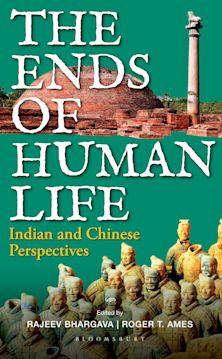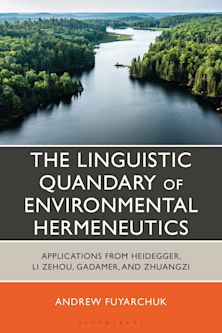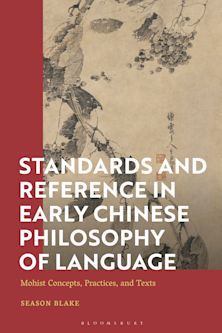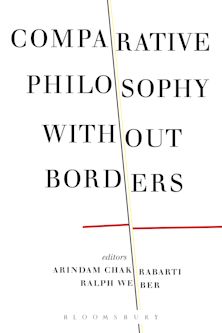- Home
- ACADEMIC
- Philosophy
- Chinese Philosophy
- Transcendence and Non-Naturalism in Early Chinese Thought
Transcendence and Non-Naturalism in Early Chinese Thought
Transcendence and Non-Naturalism in Early Chinese Thought
You must sign in to add this item to your wishlist. Please sign in or create an account
Description
Contemporary scholars of Chinese philosophy often presuppose that early China possessed a naturalistic worldview, devoid of any non-natural concepts, such as transcendence. Challenging this presupposition head-on, Joshua R. Brown and Alexus McLeod argue that non-naturalism and transcendence have a robust and significant place in early Chinese thought.
This book reveals that non-naturalist positions can be found in early Chinese texts, in topics including conceptions of the divine, cosmogony, and apophatic philosophy. Moreover, by closely examining a range of early Chinese texts, and providing comparative readings of a number of Western texts and thinkers, the book offers a way of reading early Chinese Philosophy as consistent with the religious philosophy of the East and West, including the Abrahamic and the Brahmanistic religions.
Co-written by a philosopher and theologian, this book draws out unique insights into early Chinese thought, highlighting in particular new ways to consider a range of Chinese concepts, including tian, dao, li, and you/wu.
Table of Contents
Part I: Groundwork-Questioning a Naturalistic Interpretation of Early Chinese Thoughts
1. “Naturalism” in Western Philosophy and its Use in Scholarship on Chinese Thought
2. Rethinking Transcendence and Nature
3. The Naturalist Project of the Han
Part II: Transcendence-Readings of Key Concepts and Texts
4. Does Tian Will? The Debate in Warring States and Han
5. The Relationship Between Tian and Humanity
6. Tian and the Grounding of Ritual
7. Dao and the Propensities of Tian
8. Dao and Cosmogony
9. Dao as Action and Natural Law
Part III: Substance-Readings of Key Concepts and Texts
10. Qi as Substance in the Early Han
12. Chapter Twelve: Qi as Essential Spirit
13. An Essential Reading of Xing
14. An Essential Reading of Xin
Bibliography
Index
Product details

| Published | 03 Sep 2020 |
|---|---|
| Format | Ebook (PDF) |
| Edition | 1st |
| Extent | 256 |
| ISBN | 9781350082540 |
| Imprint | Bloomsbury Academic |
| Publisher | Bloomsbury Publishing |
About the contributors
Reviews
-
[T]he greatest value of Brown and McLeod's study consists in that they have made an extremely convincing case for comparative theologians, philosophers and interreligious scholars on Chinese thought to abandon the binary “the same or not” mindset identified at the beginning of this review. With a further respect towards the historical and traditional nature of classical Chinese thought, I believe their work can lead to even more fruitful conversations on how to harmonize classical Chinese thought and Western thought without making them uniform.
Journal of Interreligious Studies
-
Whether it is a discussion of the non-naturalism of dao or tian, Brown and McLeod demonstrate the intellectual value of comparative philosophy as one formidable approach to early Chinese philosophical writings.
China Review International
-
[What] Brown and McLeod try to accomplish in this book is to prove there are a number of texts of early Chinese thought … which can be interpreted fruitfully by means of a conversation with Western thinkers rich on transcendence and non-naturalism … I celebrate that, because of their sophisticated analyses of so many early Chinese texts, Brown and McLeod have accomplished their goal.
Notre Dame Philosophical Reviews
-
Challenging the popular scholastic view that early Chinese thinkers lacked non-naturalistic concepts, Brown and McLeod robustly demonstrate the importance and varied ways of non-naturalist and transcendental concepts in early China, presenting an invaluable contribution to the field of Chinese philosophy and comparative philosophy.
Jinhua Jia, Chair Professor of Humanities, Yangzhou University, China

ONLINE RESOURCES
Bloomsbury Collections
This book is available on Bloomsbury Collections where your library has access.



































